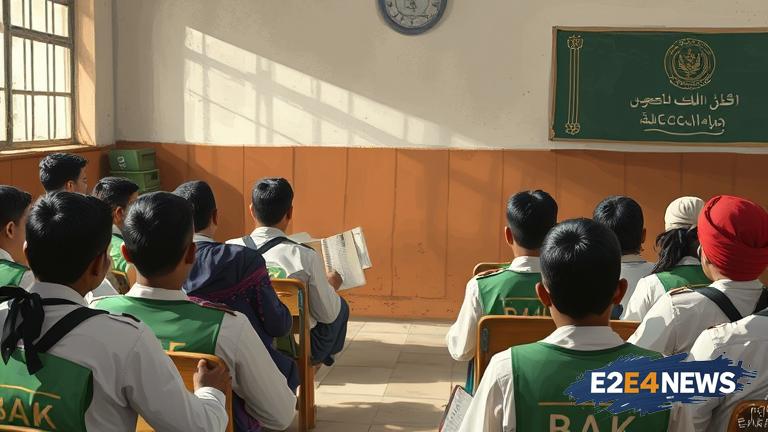Pakistan’s education system has been a subject of concern for many years, with the country consistently ranking low in global education rankings. The recent ranking of Pakistan as the second worst country in terms of education is a stark reminder of the challenges faced by the country’s education sector. Despite efforts to improve the education system, Pakistan continues to struggle with issues such as inadequate funding, poor infrastructure, and a lack of qualified teachers. The country’s education system is also plagued by corruption, with many schools and universities being run as businesses rather than institutions of learning. Furthermore, the curriculum taught in Pakistani schools is often outdated and does not equip students with the skills required to compete in the modern job market. The education system also faces challenges in terms of accessibility, with many children in rural areas being denied access to quality education. The government has launched several initiatives to improve the education system, including the introduction of new curriculum and the establishment of new schools and universities. However, these efforts have been hindered by a lack of funding and corruption. The private sector has also played a significant role in the education system, with many private schools and universities being established in recent years. Despite this, the quality of education in private institutions is often questionable, with many institutions being run solely for profit. The education system in Pakistan is also heavily influenced by the country’s social and cultural norms, with many girls being denied access to education due to cultural and religious beliefs. In addition, the education system is often used as a tool for political gain, with many politicians using education as a means to further their own interests. The consequences of Pakistan’s poor education system are far-reaching, with the country facing significant challenges in terms of economic development and social progress. The lack of a well-educated and skilled workforce has hindered the country’s ability to compete in the global economy, resulting in high levels of unemployment and poverty. To address these challenges, the government must take a comprehensive approach to reforming the education system, including increasing funding, improving infrastructure, and promoting accessibility and quality. The private sector must also play a role in promoting quality education, rather than prioritizing profits over people. Ultimately, the choice to rank last in education is a choice that Pakistan can no longer afford to make, and it is imperative that the country takes immediate action to address the challenges faced by its education system.
